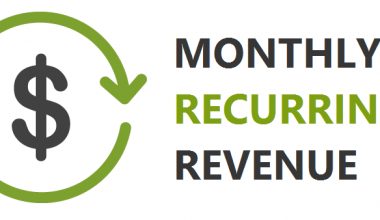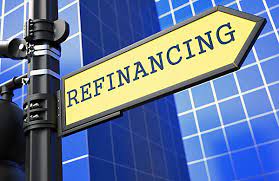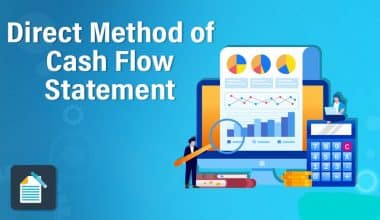When using a secured credit card, you’ll need to put down a downpayment as collateral, while on an unsecured credit card, you don’t have to pay a downpayment. As much as both credit cards seem to be similar, they have a key difference, which you will see in this guide. Keep reading to learn their differences ( a secured vs. an unsecured credit card for rebuilding credit).
Secured Vs an Unsecured Credit Card
A secured credit card refers to when you apply for a credit card, you’ll need to put down a downpayment as collateral or security.
How Secured Credit Card work
If you’re considering using a secured credit card, here’s what you should know about it.
#1. Get a secured credit card
Obtaining a secured credit card isn’t certain as obtaining a regular credit card. Each credit card issuer has its own set of rules and regulations regarding the use of a secured card. It is possible that there will be extra permission criteria in addition to the downpayment.
#2. Deposit
It’s possible that your security deposit will be less or more than the agreed-upon sum. Your credit line and the security downpayment may be the same. Some secured cards, on the other hand, may grant a credit limit greater than the security downpayment.
#3. Usage
Secured credit cards can be used in the same way as unsecured credit cards once they’ve been issued and you’ve completed your downpayment. There is a good probability that only you will understand that you are using a secured credit card since it looks like an unsecured credit card.
Furthermore, using a secured card means that you must keep a record of your purchases and pay your monthly statement on time.
#4. Refund
Refunding deposits are more like a norm. However, you should have in mind that credit card providers have different procedures when it comes to making refunds.
Unsecured Credit Card: How it works
An unsecured credit card refers to not having to make deposits as security when applying for it. Financial institutions and community banks offer unsecured credit card accounts. The following is how it works.
#1. Both online-offline stores accept it.
Private details and permission for a credit check are required to apply for one. Credit cards can be used both in online-offline stores once an unsecured credit account has been established.
#2. Specific Limit
A sort of revolving credit, unsecured credit cards do not require a down payment. In other words, you’ve been given permission to make purchases on the account up to a specific limit, which is automatically renewed each time you make payment.
#3. No Loan Interest When You Complete the Balance
You don’t have to pay interest if you pay off your balance in full. However, if you fail to complete your balance, you’ll have to pay interest on the debt. Additionally, you’ll have to make the minimum monthly payment if you don’t.
Secured Credit Card vs. Unsecured Credit Card: Rebuilding Credit
Both credit cards normally follow the exact procedure for helping in rebuilding your credit. In most cases, the card issuer transmits your bank transactions to the credit bureaus. The bank transactions include your payment history, your current balance, and other necessary things involved. Afterward, credit-scoring organizations can use these details to create your credit score.
Please remember, however, that not all card companies disclose the state of their secured cards. A secured card reporting to one of the three main credit agencies is ideal if you want to improve your score. Frequently, Capital One and some other secured credit card issuers will disclose your creditworthiness to credit reporting agencies.
Finally, credit-building advice can be found at the Consumer Financial Protection Bureau (CFPB). Make it a priority to pay your monthly credit card fees on time. Strive to clear off the entire sum monthly, or at the very least, maintain it as low as possible each month. Also, reduce your credit card usage to below 25 percent of your available credit.
A secured Vs an Unsecured Credit Card: Key Difference
Contrary to an unsecured credit card, a secured credit card demands a downpayment to guarantee the credit line. Essentially, you’re using it to put money on your credit card.
Most lenders require a down payment from applicants who are considered high-risk because of their insufficient or unfavorable credit history or credit score.
If you fail to complete the balance, the credit card company has the right to keep the downpayment you’ve made. A yearly fee may be charged to the person that is holding the card in some situations. Rewards points for future sales aren’t as common on these cards as they would be on a credit card with a lower annual fee.
An unsecured credit car
- Require a high credit score and a long history of responsible borrowing.
- No Making of deposit as a collateral
- Offer a lot of incentive schemes
Secured Credit Card
- People with low credit ratings or no credit history should use this service.
- Require a downpayment as a form of collateral
- Do not normally provide any sort of incentive scheme.
How to Make the Most of Your Secured Credit Cards
Many of the same rules that apply to revolving credit accounts apply to secured cards. In order to assist you to achieve it, here are some tips:
#1. Deposits
Ensure that you can fully finance your deposit within the time range allowed by the card issuer before placing your order. If you don’t make the deposit early, the lender has the option of shutting your account off.
#2. Expenditures
check on your finances. It’s possible that your credit card will be rejected if you go above your limit. Adding interest to the equation raises the possibility of accruing debt in excess of the initial deposit.
#3.Budgets
You may be able to stay under your credit limit if you simply make a few specific transactions each month using your card. And that can make it easier for you to become acclimated to paying with a credit card in the future.
#4. Payments
Think about how much you have to pay each month. It’s possible to prevent interest as well as other costs if you pay your bill in full each month. A secured credit card is the best option for college students and newbies when it comes to having a credit card.
Secured Vs Unsecured Credit card: Pros and Cons
The following are the benefits and downsides of a secured and an unsecured credit card.
Pros of Secured Credit card
#1. Building credit
Secured credit cards transmit your bank details to credit bureaus in the same way that regular credit cards do. This implies that if you routinely pay your bill on time, they will appear on your credit history and help you establish credit.
#2. Easy Approval
In the event of nonpayment, your card issuer is less concerned because of the collateral downpayment you provide. During application, the worth of your credit isn’t nearly as vital as it is with other types of cards.
#3. Refund is possible
With the exception of nonpayment, you will be refunded for your deposit. The most you’ll lose if you go into default is your deposit, provided you owe no more than the amount of your downpayment. It’s crucial to keep in mind, though, that not paying when you should on secured credit cards can still harm your credit score.
#4. Reward
It’s not widespread, but some secured business credit cards provide features like travel insurance and cashback that are identical to unsecured cards. Think about using your credit card’s cashback program to assist pay down your monthly bill.
#5. A stepping stone
If you’re looking to improve your credit, a secured credit card may be exactly what you need. A secured card is a good first step in building your credit if you can only get approved for one right now.
The Cons
Secured credit cards have some downsides, but if you do your research and pick the correct card, you can reduce many of them. Having said that, it’s critical to understand the most pressing issues surrounding secured credit cards.
#1. They demand a security deposit.
Deposits of at least $300 are required by many secured credit cards, which may not be financially feasible at this time. If you’re concerned that a card will be out of your grasp because of this, look into the few that only need a small deposit. Just keep in mind that the amount you put in tends to coincide with the credit limit you are given.
#2. Expect to pay a lot of money.
Your secured card may have significant fees, just like any other credit card. Application fees, service charges, and annual fees are all examples of these. To select a card that doesn’t impose too many additional fees, you should look at it.
#3. High-Interest rates
Owing to the increase of not meeting up to the demand that secured credit card issuers expect to see among those with low credit scores, these cards typically do not provide liberal interest rates, escalating your monthly payments. Among most secured cards costing between 15 and 25 percent interest, this is perhaps the most difficult downside to prevent.
#4. Low credit limit
Owing to the low credit limits, card rejection may be inevitable if you try to make a substantial transaction. By making it much harder to maintain your credit usage inadequate, low credit limits might hurt your credit score. Your score will not improve if your balance falls below $100 at any moment if you have a $200-$300 credit limit.
#5. No assurance of an upgrade.
No matter how hard you work, getting an unsecured credit card is always a gamble. Your credit record may suffer if you shut your account to apply for a new card, which could hinder your score from reaching the required level for an unsecured credit card.
Pros of Unsecured Credit card
Check out this section to see the benefits you can get from an unsecured credit card.
#1. There are no little fees
Many no-fee unsecured credit cards come with generous rewards programs. In contrast, candidates with lower credit ratings may be required to pay additional fees and miss out on many of the benefits.
#2. Rewards
Secured credit cards typically lack the comprehensive features and rewards programs offered by most other cards. Great or exceptional credit ratings are rewarded more generously by issuers.
#3. Collateral free
If you have a good credit score, you don’t have to install any collateral to acquire a credit card.
#4. Low-Interest rates
Clients can only spend a limited amount per payment cycle on unsecured cards. No interest is paid to customers who clear off their account in whole and on schedule. In any case, if you’ve got a high credit score, you can get low-interest rates even if you’re yet to pay in full.
Cons
Despite the fact that an unsecured credit card has a number of advantages, there are some drawbacks to keep in mind.
#1. Approval is more difficult to come by:
If you have a good credit score and credit history, you can get an unsecured credit card. People with weaker credit scores may have a harder time being authorized, specifically if they want to take advantage of some of the program’s features.
#2. Easier to go over budget
All credit cards are subject to this rule. Credit cards do not give you access to a free flow of capital. Any money that has been spent must be repaid. Your credit score indicates to the card provider that you have the ability to consistently pay off your debts.
Is It Better To Have a Secured Credit Card or an Unsecured one?
Consumers generally get a better bargain with unsecured credit cards. Unsecured credit cards don’t require a down payment or another form of collateral. Credit cards are typically unsecured. Unsecured credit cards typically offer better benefits and incentives, as well as reduced fees and interest rates.
What Are 2 Downsides of Getting a Secured Credit Card?
These are the two downsides of getting a secured credit card:
- Frequently impose increased annual fees and interest rates. By shopping for a no-fee card and making sure you don’t carry credit card debt from month to month, you can lessen this drawback.
- You must deposit cash; doing so links your funds to the credit card company.
Does a Secured Card Hurt Your Credit?
If the issuer performs a rigorous query on your credit report to determine your creditworthiness, then opening a secured credit card can damage your credit. Your credit score will probably drop a few points after a hard inquiry, but if you use your new secured card carefully, it should rise again in a few months.
Do Secured Cards Really Build Credit?
A cash deposit is needed in order to secure purchases made using a secured credit card, which is a special kind of card. A secured credit card can be an effective instrument for establishing and enhancing credit, provided your lenders record your payment history to the three national consumer reporting agencies.
How Fast Will a Secured Card Build Credit?
It usually takes one to two months after you start using your protected card for your score to start increasing. According to Experian, it may take up to six months for a credit score to even appear on your record if you are just starting out with credit building.
Do Secured Cards Build Credit Faster Than Unsecured?
Although secured credit cards are a common way to establish or repair credit, they don’t always have a better or worse impact on your credit score than unsecured cards. In actuality, your credit scores are unaffected by the kind of card you have, the fees associated with it, the interest rate, or whether it’s secured.
How Long Should I Keep a Secured Credit Card For?
Depending on your credit score, you should keep a secured credit card open for at least a year and possibly more. It’s recommended to hold off on canceling a secured card until you’ve established a respectable credit rating and been given approval for an unsecured credit card with no annual fee and excellent rewards.
Conclusion
I hope this guide was helpful to anyone seeking to figure out the difference between a secured and an unsecured credit card.
SECURED VS UNSECURED CREDIT CARD FAQs
Which is better a secured credit card or unsecured?
Although secured credit cards are a common way to establish or repair credit, they don’t always have a better or worse impact on your credit score than unsecured cards.
How long until secured credit card is unsecured?
If a secured card is used appropriately, it normally takes 12 to 18 months for it to turn into an unsecured card.
Will secured credit card raise credit score?
Yes, it will. Moreover, as long as the lender discloses card transactions to credit agencies, the card is an excellent way to start creating a solid credit history.






